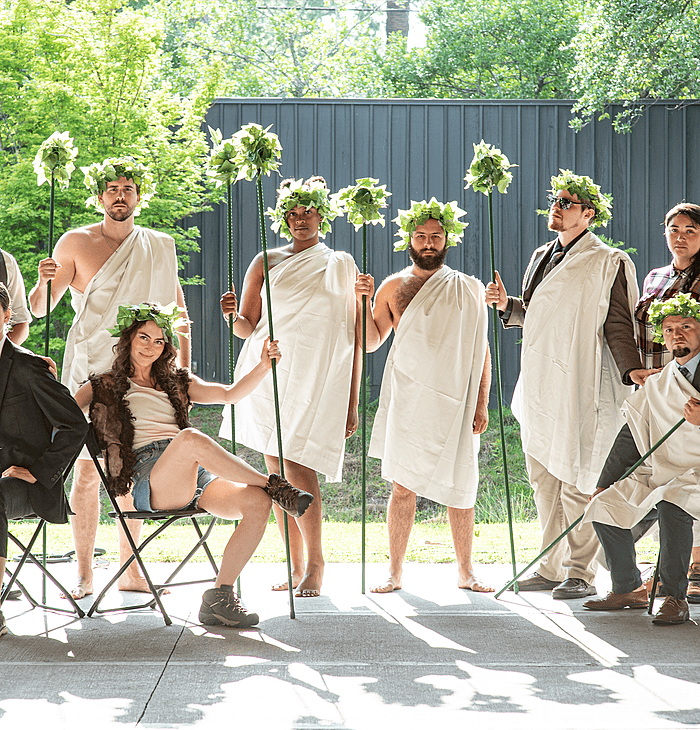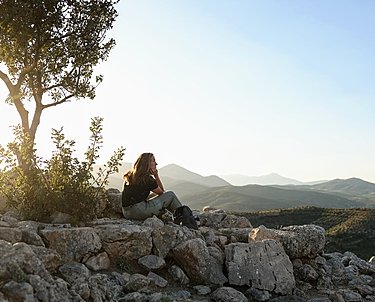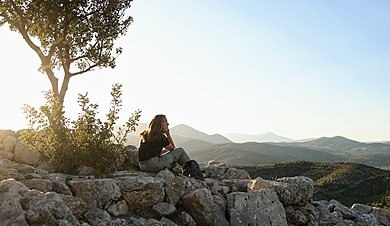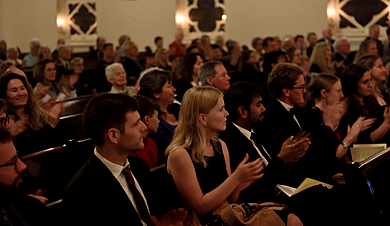

Ralston College’s inaugural class brings Euripides’ Bacchae to life in Savannah
News 5th June 2023
On June 1st, nearly 200 people gathered in the outdoor garden theatre of Savannah’s Ships of the Sea Maritime Museum for a student production of Euripides’ The Bacchae.
The play was translated and directed by Ralston College MA student Emily Wendt and performed by members of the College’s inaugural class of 2023, who had just completed an intensive year of study—including full immersion in both Ancient and Modern Greek.
The tragedy follows Dionysus—the god of wine, theatre, and ecstasy—as he returns to his homeland of Thebes to demand recognition from those who once denied him. At once joyful and terrifying, the drama explores themes of identity, madness, and the dissolution of the self into the group.
The cast featured Emily Wendt as Dionysus, Lydia Kapp as Pentheus and Agaue, Aaron Waits as Kadmus, and Nate Spanos as Teiresias, alongside fellow students Analisa Gomez, Joshua Pautz, Elijah Weaver, Costa Lavigne-Thomas, Sade Nayo, and Michael Collins.
For Wendt, who first encountered Euripides during her undergraduate studies at Georgetown, this translation was the culmination of years of devotion to the text. “I love The Bacchae the way Alcibiades loved Socrates,” she wrote in her program note. “Recklessly, passionately, frantically, completely, or not at all. I have striven to express the wordplay and beauty of the Greek in order to make these details available to you in English.”
Her translation, first read aloud during Ralston’s term in Samos, seeks to capture both the poetry and the urgency of Euripides’ Greek. “He screams at me and pulls me toward him from the afterlife,” Wendt reflected. “I am driven by a need to throw him into the spotlight where he has always belonged and to make this masterpiece accessible and true in a way no English translation I’ve seen has done.”
Reflecting on the production, Wendt emphasized both the trust of her classmates and the significance of the event:
“I was very grateful for the trust put in me by both the faculty overseeing this project and by my classmates. Many members of the Bacchae cast had never acted before, but no one who came to the show would have known. The biggest successes of this production (apart from audience reaction) were student experience and showcasing a new side of Ralston to the community. This play was the debut of the College’s inaugural class: finally Savannah saw what sort of students and people Ralston had brought together. Putting on an entirely apolitical event like the Bacchae brought Ralston to a broader audience, which was perhaps more noteworthy still given how easily this particular play can be shoehorned into serving various ideologies.”
The evening was met with great enthusiasm, as the audience experienced not only the enduring power of Greek tragedy but also the courage of students who, after an intensive year of study, brought one of antiquity’s most demanding works to the Savannah stage—if only for a single night.
Humanities
MA
MA
Spend a year in dialogue with life's most searching questions in an open-minded community in Greece and then beautiful Savannah.




